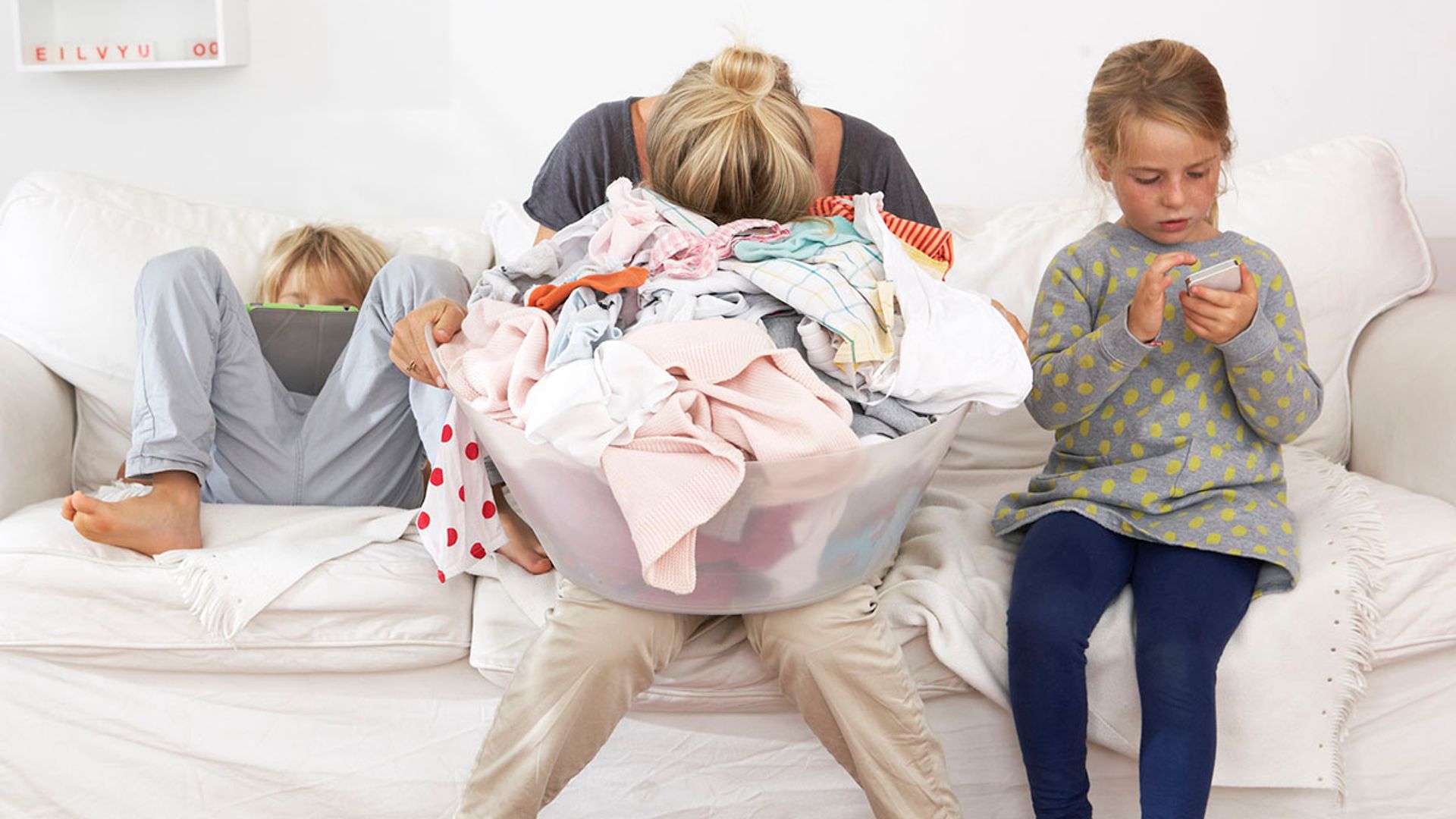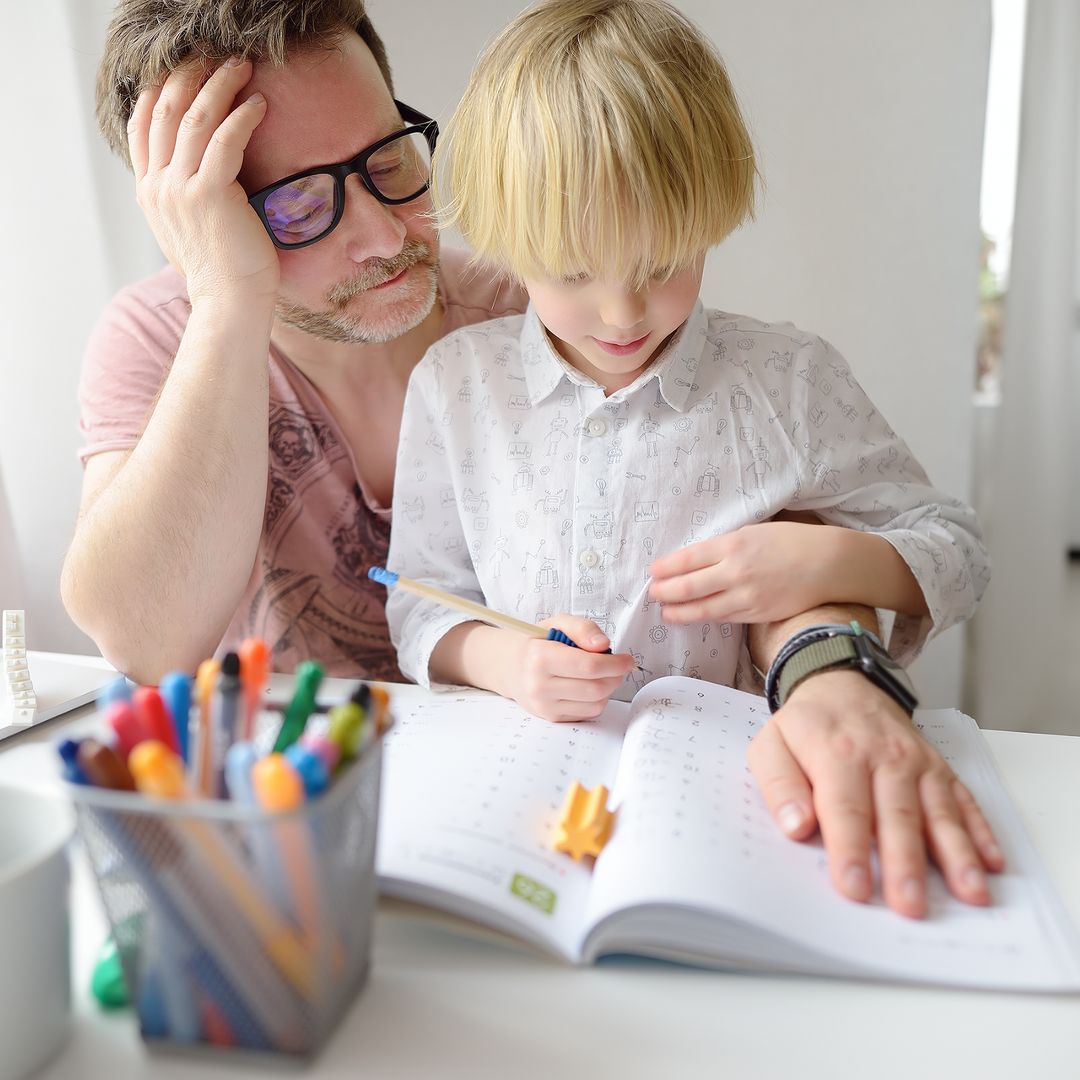Parenting is no easy task and even the calmest among us feel stressed out at home on occasion. You know, when dinner is ready and no one listens and clothes are all over the floor AGAIN.
But how do we regain our composure after a not-so-calm-parent moment or keep it together when we feel the tension rising?
MORE: How to help your teenager stay safe on TikTok
Clinical Psychologist Dr. Catherine Wikholm and Serenata Flowers have shared some brilliant advice with HELLO! on techniques to keep our cool, from breathing exercises to unwinding tips and how to deal with ongoing parental stress. Read her suggestions below…
Try breathing exercises
Dr. Catherine Wikholm explains: "Breathing exercises are a great tool to have in your stress management 'toolkit' as they are a simple, effective way of eliciting the relaxation response.
If you’re feeling stressed or anxious, using a deep breathing technique with a slow, steady inhalation to exhalation ratio is of the simplest, most effective ways to calm your nervous system.
During a deep breathing exercise, you want to aim to breathe from your diaphragm.
Place one hand on your chest and another on your abdomen, and you should notice your abdomen (not your chest) expanding as you inhale and retracting as you exhale.
Breathe in through your nose, and out through your mouth, aiming for a slow, controlled out breath. It can help to imagine that you are softly blowing on a candle - not hard enough to blow it out, but enough to make the flame dance.
Try initially breathing in for a count of two, hold for one, then exhale gently to a count of four… then extend the breaths, breathing in to a count of four, hold for one, and out for six.
If it feels comfortable, you can try extending it further, to a count of in for six, hold for one and out for eight.
It’s not so important how long the breaths are, so long as the exhale is longer than the inhale. Just do what feels comfortable for you. After a couple of minutes, you will likely notice that you feel physically and mentally more relaxed.
Children and teenagers can really benefit from breathing exercises too. If you have young kids, a fun way to introduce this is by using bubble mixture and encouraging them to blow as many bubbles as they can - as doing this naturally requires the long, slow, controlled out-breath."
How to unwind in the evening
"As a parent, it can often feel that there aren’t enough hours in the day to get everything done and meeting your own needs can often end up bottom of your priority list.
However, in order to cope well with the stress of parenting, it is important that you give yourself some time to intentionally unwind on a daily basis and that this becomes a regular part of your routine.
Try to think of relaxation and self-care as a necessity, not a luxury.
Doing things that help to reduce your stress levels will not only benefit you personally but help you to be a more calm, emotionally-regulated parent for your kids.
If you’re feeling physically tense, you may benefit from trying relaxation techniques like progressive muscle relaxation, gentle movement such as yoga or pilates, or just having a long bath.
Or to calm a busy, worried mind choose a soothing yet immersive activity like reading, listening to music or a podcast, doing something creative (like drawing), or a guided visualisation audio."
MORE: Kids' Halloween pyjamas you'll love as much as they do
What to do when you get frustrated or angry
"When you get frustrated or angry with the kids, first of all, know that these are normal human emotions that we can all experience during times of stress. You are not a bad parent for feeling this way, and your kids are not bad kids.
Take it as an opportunity to model emotional regulation and relationship repair to your children.
Name your emotion and say what it is you need to do to help yourself to calm down e.g. 'I am very frustrated right now, so I am going to take five minutes to myself and go drink a glass of water.'
Once you are feeling more regulated, reconnect with your child.
This might look like offering a hug and an apology - and perhaps also suggesting a 'do over’'. This is a great tool for repairing with your child if your emotions have got the better of you and you haven’t handled a situation how you might have wanted to (e.g. you end up shouting at your kids for taking too long getting dressed).
In the 'do over', you and your child start the activity or task again, and this time, you both play it out differently, in a calmer, more connected way, as you would have wanted it to go.
Kids tend to love this creative approach and after a few times, you may find your child starts suggesting the do-over themselves in situations where emotions have run high and things haven’t gone to plan.
Learning about the stages of children’s brain development and capacity for emotional regulation can also be helpful in terms of being able to better manage our own emotions as parents.
For example, dealing with tantrums can be very triggering especially if you believe the behaviour is intentional and that your child could just ‘snap out of it’.
Understanding that this kind of emotional dysregulation is not intentional allows you to make a reframe like 'my child is having a hard time', rather than 'they are giving me a hard time,' which can help to take the edge off your own frustration."
How to avoid feeling stressed all the time as a parent
Aim for 'good enough' parenting, not perfect parenting
"Perfect parents don’t exist; striving for this will only backfire and lead to inevitable feelings of failure, stress and anxiety.
Lower your stress levels by letting go of unrealistic perfection as a goal and embracing ‘good enough’ parenting, wherein you aim to parent as best as you can while accepting that you’re only human.
Of course, it’s positive to aim to be a calm, responsive and engaged parent - but don’t beat yourself up about it if you aren’t able to fully meet all of your children’s needs 100% of the time. In fact, learning to cope with minor disappointments and frustrations can actually be helpful for children’s cognitive and emotional development."
MORE: The highest-earning baby names revealed - and two are royal
Practice self-compassion
"During times of stress, it’s easy to fall into patterns of negative self-talk, self-blame and self-criticism - which does nothing to change the situation and only makes you feel worse.
To cope better with stress (and feel better about yourself as a parent), try to practice self-compassion.
One way of doing this is to try to talk to yourself as you would a close friend. What would you say to someone you care about, if they were in the same stressful situation as you? Try to speak to yourself in the same way and notice how much better it feels."
Don’t make social media comparisons
"When you’re having a stressful day with the kids, scrolling through images of seemingly blissfully happy families can contribute to increased feelings of stress and guilt.
To counteract this, remind yourself that on social media you are mostly only seeing other people’s highlight reel, not the reality of their daily lives."
Pay attention to the small positives of each day
"When you are feeling stressed, your mind is likely to over-focus on problems and the things you are worried about, making you feel worse.
To help to rebalance your thinking, try to remind yourself on a daily basis of what has gone well that day, anything you enjoyed, felt grateful for, that you appreciated - or that made you feel appreciated.
Whether that’s hearing an 'I love you' from the kids, receiving a bunch of flowers from your partner or just allowing yourself the time for a relaxing bath, attending to the small positives can help to give us a boost on a stressful day."
Serenata Flowers is offering a discount code Blooms4Blues for 10% off until the end of September











